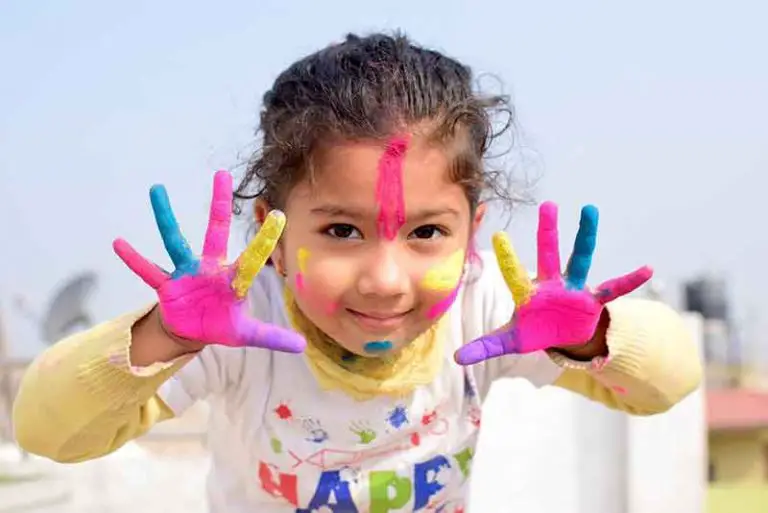Is Socializing A Hobby? [Benefits & Impact Explored]
Hey there! Ever wondered if hanging out with friends can be considered a hobby? Join me on this exploration of whether socializing is more than just a pastime. Let’s dive into the world of connections and conversations to answer the intriguing question: Is Socializing A Hobby?
Table of Contents
The Definition of Socializing as a Hobby
Socializing is often seen as a hobby by many individuals, as it involves actively engaging with others in various social activities. Unlike traditional hobbies such as painting or playing a musical instrument, socializing is not an activity that one can do alone.
Instead, it revolves around interacting with friends, family, acquaintances, or even strangers, in order to forge connections and build relationships.
As a hobby, socializing encompasses a wide range of activities, including attending parties, participating in team sports, going out for dinner or drinks, or simply engaging in casual conversations with others.
It provides individuals with an opportunity to meet new people, share experiences, exchange ideas, and develop meaningful connections. While some people may engage in socializing purely for fun and enjoyment, others may view it as a way to enhance their personal and professional networks.
One of the defining features of socializing as a hobby is its interactive nature. Unlike solitary hobbies, which often focus on individual skill development or personal fulfillment, socializing primarily involves engaging with others.
It requires active participation, communication, and the ability to connect with people on different levels. It can be a source of joy, fulfillment, and personal satisfaction, especially for those who enjoy meeting new people and nurturing relationships.
Moreover, socializing as a hobby allows individuals to broaden their horizons and gain a deeper understanding of different cultures, perspectives, and ideas.
By interacting with people from diverse backgrounds, individuals are exposed to new experiences, beliefs, and ways of thinking. This not only encourages personal growth but also fosters tolerance, empathy, and open-mindedness.
In today’s digital age, socializing has also expanded to encompass online platforms such as social media, forums, and virtual communities. These platforms provide individuals with opportunities to connect with others from all around the world, irrespective of geographical boundaries.
Online socializing can be just as rewarding as in-person interactions, as it allows individuals to share their thoughts, experiences, and interests with a broader audience.
Socializing can indeed be considered a hobby, as it involves actively engaging with others, forging connections, and participating in various social activities. Whether it’s through in-person interactions or online platforms, socializing provides individuals with opportunities to meet new people, share experiences, and develop meaningful relationships.
So, if you enjoy spending time with friends, meeting new people, or simply engaging in conversations, consider socializing as a hobby that can bring joy, personal growth, and fulfillment into your life.
The Benefits of Socializing as a Hobby

Engaging in social activities is not only a pleasant way to spend your time, but it can also be considered a hobby.
While traditional hobbies often involve individual pursuits, such as crafting or playing a musical instrument, socializing as a hobby revolves around connecting with others and enjoying their company.
By actively choosing to make socialization a regular part of your lifestyle, you can reap numerous benefits for your mental, emotional, and even physical well-being.
One of the main advantages of socializing as a hobby is its ability to enhance your social skills and communication abilities. Regularly interacting with different individuals from diverse backgrounds allows you to refine your interpersonal skills, including active listening, empathy, and effective communication.
By practicing these skills through social engagements, you can strengthen your relationships both personally and professionally.
Another benefit of socializing as a hobby is that it provides opportunities for personal growth and self-discovery. When you engage in social activities, you often encounter new experiences and perspectives that challenge you intellectually and emotionally.
These interactions can broaden your horizons, expand your knowledge, and foster personal development. By stepping out of your comfort zone and engaging with others, you can cultivate a more open-minded and adaptable mindset.
Furthermore, socializing as a hobby plays a crucial role in promoting positive mental health and emotional well-being. Human beings are inherently social creatures, and social interactions contribute to our sense of belonging and fulfillment.
Regular social engagement can help combat feelings of loneliness, reduce stress levels, and improve overall emotional resilience. Sharing experiences, laughter, and emotional support with others can significantly enhance your overall mood and happiness.
Socializing as a hobby also offers opportunities for relaxation and enjoyment. Engaging in social activities you find pleasurable and meaningful can provide a break from the daily routine and bring a sense of joy and fulfillment.
Whether it’s going to social events, joining clubs or groups, having coffee with friends, or participating in team sports, finding activities that bring you happiness can contribute to a well-rounded and satisfying life.
To fully realize the benefits of socializing as a hobby, it’s important to strike a balance with other interests and responsibilities. While it’s beneficial to devote time to social activities, it’s equally important to make time for personal hobbies and self-care.
Finding a harmonious balance between socializing and other pursuits will contribute to a well-rounded and fulfilling life.
Socializing can indeed be considered a hobby, offering numerous benefits for personal growth, mental well-being, and overall happiness. By actively engaging in social activities, refining interpersonal skills, and nurturing relationships, you can cultivate a fulfilling and purposeful life.
Socializing as a Hobby: Exploring Different Forms
When we think of hobbies, activities like painting, playing an instrument, or gardening often come to mind. However, socializing can also be considered a hobby, as it provides us with enjoyable and fulfilling experiences.
Socializing as a hobby involves engaging in various forms of interaction with others, fostering connections, and participating in shared interests and activities.
One form of socializing as a hobby is joining clubs or interest groups. These can range from sports teams and book clubs to cooking classes or community organizations. Being part of these groups allows individuals to connect with like-minded individuals who share similar passions and interests. Engaging with others who have similar hobbies can be highly rewarding, as it promotes a sense of belonging and provides opportunities for learning and personal growth.
Attending social events and gatherings is another way people incorporate socializing into their hobbies. Whether it’s going to parties, concerts, or festivals, these events offer the chance to meet new people and enjoy shared experiences.
Socializing in these settings provides a break from routine and allows individuals to unwind, have fun, and build connections with others who have similar interests.
Social media platforms have also revolutionized the way we socialize, making online networking and connecting with others worldwide a hobby in itself.
From joining online communities and discussion forums to following influencers and participating in group activities virtually, social media platforms offer endless opportunities for socializing.
Engaging in online socializing allows individuals to connect with a diverse range of people, expanding their horizons while still enjoying the comforts of home.
Volunteering is yet another form of socializing as a hobby. Engaging in volunteer work not only allows individuals to contribute to their communities but also provides opportunities for social interaction.
As volunteers work together towards a common cause, they can forge meaningful connections and develop friendships with like-minded individuals who share their values and goals.
Volunteering as a hobby not only provides personal fulfillment but also helps create a positive impact on society.
Incorporating socializing into our lives as a hobby can have numerous benefits. It enhances our social skills, boosts our self-confidence, and reduces feelings of loneliness and isolation.
Engaging with others in a social setting can also broaden our horizons, expose us to new ideas, and promote personal growth.
Moreover, socializing as a hobby can improve our overall mental health and well-being, as it allows us to connect with others, share experiences, and create cherished memories.
Socializing can indeed be considered a hobby, encompassing various forms of interaction and connection with others.
From joining clubs and interest groups to attending events, utilizing social media platforms, or volunteering, socializing as a hobby offers a plethora of opportunities for personal growth, learning, and enjoyment.
By incorporating socializing as a hobby into our lives, we can enhance our overall well-being and foster meaningful connections in a world that is increasingly interconnected yet sometimes isolating.
The Impact of Socializing on Mental Health and Well-being
Socializing is not just a hobby; it is a fundamental aspect of human existence that has a significant impact on mental health and overall well-being. As social beings, we have an innate need for connection, interaction, and belonging.
Engaging in social activities can provide numerous benefits that contribute to a person’s emotional, psychological, and even physical health.
One of the primary advantages of socializing is its positive influence on mental health. When we engage in social activities, whether it is having a meaningful conversation with a friend or participating in a group activity, our brains release hormones such as oxytocin, also known as the “cuddle hormone,” dopamine, and serotonin.
These hormones play a crucial role in regulating our mood, reducing stress, and promoting feelings of happiness and well-being.
Furthermore, socializing helps combat feelings of loneliness, which is known to have detrimental effects on mental health. Loneliness has been associated with increased rates of depression, anxiety, and even physical health issues such as cardiovascular diseases.
By socializing regularly, individuals are more likely to have a support network, build friendships, and establish a sense of belonging, all of which are essential for mental wellness.
In addition to its impact on mental health, socializing also has a positive influence on physical well-being. Engaging in social activities often involves physical movement, whether it is participating in sports, going for walks with friends, or dancing at social gatherings.
Regular physical activity has been linked to numerous health benefits, including improved cardiovascular health, increased energy levels, and a reduced risk of chronic illnesses such as obesity and diabetes.
Moreover, socializing provides opportunities for individuals to engage in new experiences and learn from one another. Through social interactions, people can gain different perspectives, exchange ideas, and acquire valuable knowledge.
This constant stimulation and learning contribute to cognitive development and can enhance problem-solving and decision-making skills.
While socializing can have an overwhelmingly positive impact on mental health and well-being, it is important to strike a balance with other hobbies and responsibilities.
It is crucial to find a healthy equilibrium between social activities and personal time for self-reflection, relaxation, and pursuing individual interests. Balancing socializing with other hobbies allows individuals to recharge, foster personal growth, and maintain a sense of autonomy.
Socializing is more than just a hobby; it is an essential component of human life that profoundly influences mental health and overall well-being. Engaging in social activities provides individuals with emotional support, reduces stress, promotes happiness, and fosters a sense of belonging.
Moreover, socializing contributes to physical well-being, cognitive development, and personal growth. By finding a balance between socializing and other hobbies, individuals can reap the various benefits while maintaining a healthy and fulfilling lifestyle.
Balancing Socializing with Other Hobbies
Finding the perfect balance between socializing and pursuing other hobbies is essential for maintaining a well-rounded lifestyle. While socializing can be an enjoyable and fulfilling pastime, it is crucial not to let it overshadow the pursuit of other interests.
By striking the right balance, individuals can enhance their overall well-being and make the most of their leisure time.
One approach to balancing socializing with other hobbies is to set clear boundaries and allocate specific time slots for each activity. This way, individuals can ensure that they have dedicated periods to engage in their preferred hobbies.
Whether it’s painting, reading, or playing a musical instrument, these activities allow individuals to explore their passions, develop new skills, and find personal fulfillment.
Another strategy for balancing socializing and other hobbies is to integrate them. By finding common interests with friends or joining social groups centered around particular hobbies, individuals can combine their desire for companionship and their love for a particular pursuit.
For example, participating in a book club is an excellent way to engage in meaningful conversations while indulging in a shared love for literature.
It is essential to remember that maintaining a balance between socializing and other hobbies is not solely about time management. Quality is also paramount. Ensuring that social interactions are meaningful and fulfilling can greatly enhance the overall experience.
Seeking out friends who share similar interests or hobbies allows for more engaging and enjoyable socializing experiences, bringing together the best of both worlds.
Additionally, it is important to be mindful of one’s energy levels and personal well-being. While socializing can be energizing for some individuals, others may find it draining. Understanding one’s own limits and prioritizing self-care is crucial in achieving a harmonious balance.
Taking time for solitude and self-reflection can be just as important as engaging in social activities or pursuing hobbies, as it allows for personal growth and rejuvenation.
balancing socializing with other hobbies is essential for a well-rounded and fulfilling lifestyle. By setting boundaries, integrating socializing with hobbies, seeking meaningful interactions, and prioritizing self-care, individuals can strike a harmonious balance.
This approach allows for personal growth, the exploration of passions, and the cultivation of deep connections with others. Remember, finding the right balance may require trial and error, so be patient and open to adjustments along the way.
Conclusion – Is Socializing A Hobby?
In conclusion, socializing can indeed be considered a hobby due to its definition, benefits, various forms, impact on mental health and well-being, and the importance of balancing it with other hobbies. Socializing as a hobby involves actively engaging in social activities and interactions with others with the intention of creating and maintaining relationships.
One of the main benefits of socializing as a hobby is the opportunity it provides for personal growth and development. Through socializing, individuals can enhance their communication and interpersonal skills, which are invaluable in both personal and professional relationships.
Additionally, socializing enables individuals to gain diverse perspectives, broaden their horizons, and learn from others’ experiences and knowledge.
Socializing as a hobby takes various forms, catering to different preferences and interests. Some enjoy attending social events such as parties, gatherings, or clubs, while others prefer participating in organized activities such as team sports, hobby groups, or volunteering.
There are also those who find fulfillment in online socializing through platforms like social media or online communities. The versatility of socializing as a hobby allows individuals to choose activities that align with their personalities and interests.
The impact of socializing on mental health and well-being cannot be overstated. Engaging in social activities can alleviate feelings of loneliness and isolation, boost self-esteem, and promote a sense of belonging.
Social interactions stimulate the release of endorphins, known as the “feel-good” hormones, which can improve mood and reduce stress. Regular socializing as a hobby can therefore contribute greatly to overall mental health and well-being.
However, it is essential to strike a balance between socializing as a hobby and other hobbies or commitments. While socializing can be fulfilling, it is important not to neglect other aspects of life.
It is necessary to allocate time for self-care, alone time, and pursuing other hobbies or interests. Balancing socializing with other activities ensures a well-rounded lifestyle, allowing individuals to fulfill their social needs without compromising other important aspects of their lives.
In conclusion, socializing can be regarded as a hobby due to its meaningful definition and the numerous benefits it brings to individuals. Engaging in social activities allows for personal growth, diverse experiences, and the development of essential skills.
Socializing as a hobby positively impacts mental health and well-being, providing a sense of belonging, reducing stress, and fostering connection. However, it is crucial to find a balance between socializing and other hobbies and commitments to maintain a well-rounded lifestyle.
By appreciating and actively participating in socializing as a hobby, individuals can enjoy the multitude of benefits it offers while ensuring the overall satisfaction and fulfillment in their lives.

![Is Socializing A Hobby? [Benefits & Impact Explored]](https://hobbyleads.com/wp-content/uploads/2023/11/Is-Socializing-A-Hobby-Benefits-Impact-Explored.jpg)
![Advantages And Disadvantages Of Hobbies [Negatives Of Leisure Time Activities]](https://hobbyleads.com/wp-content/uploads/2021/10/Advantages-and-Disadvantages-of-Hobbies-768x509.jpg)


![What Hobbies Do Guys Find Attractive? [Hobbies That Impress Guys]](https://hobbyleads.com/wp-content/uploads/2022/01/What-Hobbies-Do-Guys-Find-Attractive_-768x512.jpg)


